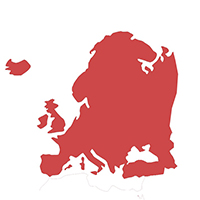The New Boundaries of Warming
David Gawith | December 12, 2015.
The gavel has dropped on the most significant climate agreement of recent times. The final version of the Paris Agreement has the stated objective of holding the increase in global temperatures to “well below 2°C” and “to pursue efforts to limit the temperature increase to 1.5°C.” Despite this goal, the current pledges from countries to reduce their emissions have us on track for between 2.7 and 3.5°C of warming. The world now has a temperature goal that is completely divorced from how we actually plan to act.
What the agreement actually does is set out the political boundaries of warming. The leaders of the conference consistently acknowledged that 1.5°C is an extremely ambitious goal. If by some breakthrough in technology we manage to rapidly reduce emissions in line with 1.5°C, the language in the Paris Agreement does not demand countries reduce their emissions any further. Within the remit of the Paris Agreement, it seems like 1.5°C is the lowest temperature increase we can expect.
At the same time, given that an agreement has been reached, in light of the communicated emissions reduction plans and assuming that these plans are fully realised, global warming should not exceed 3.5°C.
With what was agreed today, and based on the best available science, there can be expected warming of between 1.5°C and 3.5°C. This is the range that needs to be navigated. Over the coming decades, our decisions and actions will decide whether the actual warming is closer to 1.5°C or 3.5°C.
The Paris Agreement has set the boundaries for our international response to climate change, and it does not include business as usual. Today’s agreement means that, as an international community, we have committed to scaling up how we address climate change substantively.
If countries reduce emissions in line with what they have indicated, warming should be limited to below 3.5°C, although warming approaching this level could still cripple society and the systems on which we rely. The political goal is now in place to limit warming to 1.5°C – however to achieve this would require massive efforts from all countries, of which there have been few signs.
The problem has been framed and now we have choices to make, however every year we deliberate, we lose the power to choose.









![Secretary-General Ban Ki-moon meets with Leaders from Small Island Developing States
[Secretary-General’s Conference room, Le Bourget]
- H.E. Mr. Anote Tong, President of Kiribati
- H.E. Mr. Christopher J. Loeak, President of Marshall Islands
- H.E. Mr. Freundel Stuart, Prime Minister of Barbados
- H.E. Mr. Kenny Davis Anthony, Prime Minister of Saint Lucia
- H.E. Mr. Enele Sosene Sopoaga, Prime Minister of Tuvalu](https://theverb.org/wp-content/uploads/2015/12/SG-Travel2-e1449660252704-120x120.jpg)



comment